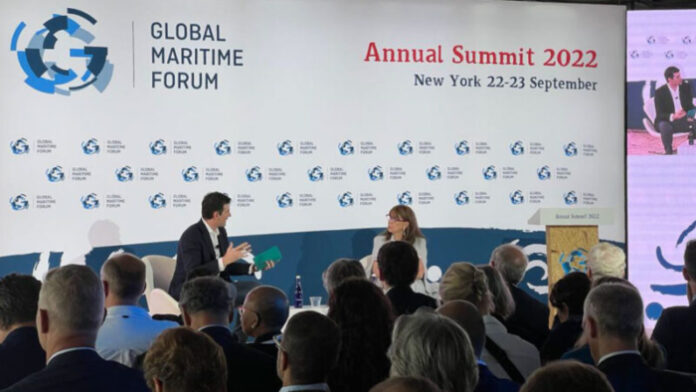
-
UNCTAD Secretary-General Rebeca Grynspan urges the global shipping industry to help soften the Ukraine war’s impact by moving fertilizer from the Black Sea
-
She lauds the work done to help transport food and fertilizers from Ukraine under the UN-sponsored Black Sea Grain Initiative
-
The food affordability crisis today may become a food availability crisis next year if the shipping industry doesn’t help the UN transport fertilizer to the farmers
UNCTAD Secretary-General Rebeca Grynspan has appealed to global shipping sector to move fertilizer from the Black Sea to farmers in poor regions like West Africa to avert a looming food availability crisis.
Grynspan aired the appeal on September 22 as she cited the key role of maritime transport in cushioning the blow of Russia’s war on Ukraine in an address to the Global Maritime Forum’s annual summit in New York.
She told the meeting, held in a New York navy yard dubbed the “can-do shipyard” during the Second World War, that maritime trade is facing a “historic moment of crisis”.
The war in Ukraine has disrupted major shipping routes and supply chains. It has also triggered global food, energy and finance crises that have sparked record prices and could push tens of millions more of people across the world into hunger and poverty this year.
The appeal comes as the global cargo shipping industry, particularly container lines, is facing excess capacity as demand for goods declines due to inflation hitting consumer sentiment and an early peak season for shipping having passed, forcing liners to reduce sailings.
Maritime transport has a key role to play in mitigating the war’s impact, as ships carry more than 80% of goods the world trades – including most of the food, energy and fertilizers people desperately need right now, Grynspan said.
The head of the United Nations Conference on Trade and Development lauded the work already done to help load and transport food and fertilizers from Ukraine under the Black Sea Grain Initiative brokered by the United Nations and Turkey.
“I have seen you sail through literally mined waters. I have seen you work the ports in the middle of a war zone,” she said. But she called on the industry to redouble its efforts.
Globally, a record 345 million people in more than 80 countries are facing acute food insecurity, according to the United Nations.
As of September 12, the Black Sea Grain Initiative had enabled more than 2.7 million metric tons of grain and other foodstuffs to move from the Ukrainian ports of Odesa, Chornomorsk and Yuzhny (Pivdennyi).
The UN says all the grain from the three Ukrainian ports benefits people in need, as it helps to calm markets and limit food price inflation. The initiative is succeeding in one of its key aims: bringing food prices down.
The UN Food and Agriculture Organization’s Food Price Index showed double-digit percentage drops in the cost of vegetable oils and cereals in July and a further 1.9% fall in August
“The Black Sea Grain Initiative and the agreement for unimpeded access to Russian food and fertilizers are now proven concepts,” Grynspan said.
“But this is only a fraction of what can be done, and what the world needs for prices to come down to affordable levels for the developing countries, or for the world to have enough fertilizers to feed itself next year.”
Grynspan said fertilizer prices – currently three times higher than the average in the previous decade – are particularly worrying, as it’s the top input cost for small farmers around the world.
She said if farmers cannot afford or access fertilizers they need, they won’t be able to plant their crops, as she cited a sowing season already lost in West Africa because of this.
“The food affordability crisis that we are dealing with today may become a food availability crisis next year because of the fertilizer issue if we don’t intervene.” Grynspan said.
She said the UN needs global shipping to move fertilizer to the needy farmers. “We need bigger ships. We need you. The world needs you. The seas are rough. Let’s brave them together.”




